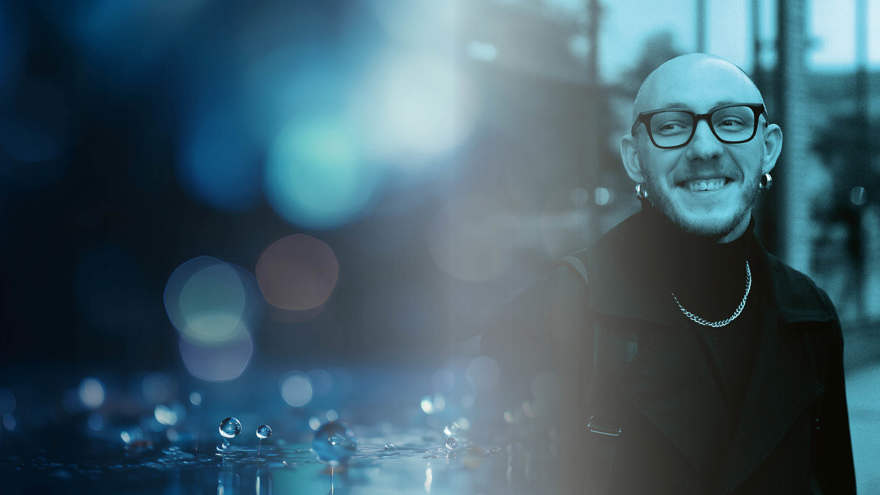Artur Kamarouski, Warszawa, Polen

Alingsås kulturhus och bibliotek
Artur Kamarouski, född 1991 i Mir, Belarus är poet, artist, konstnär, översättare, redaktör och curator. Medlem i konstnärsgruppen Krasnyi Borshchevik. Redaktör för en webplats om modern belarusisk poesi, TAUBIN – Сучасная беларуская паэзія (taubinpoetry.com)
Kamarouskis poesi har publicerats i flera litterära tidskrifter och antologier. Författare till diktsamlingarna Water begins to live 2020 (boken belönades med Maksim Bahdanovicpriset som bästa poesidebut), Corpus Vile 2023 och I´m the very forbidden flag 2023.
Hans huvudteman är kroppslighet, diskriminering, kön, sexualitet, migration och våld. Kamarouski översätter från polska, ukrainska och svenska. Som konstnär arbetar han med collage, action, performance.
Sedan 2021 har han levt i politisk exil i Tiblisi, Georgien. Nu bor han i Warszawa, Polen.
För närvarande arbetar han på sin fjärde diktsamling där han försöker förstå migrations- och integrationsprocesserna såväl som stad, land, miljö och sökandet efter ett hem.
Som ett resultat av stipendievistelsen hoppas han kunna skapa texter där andra kan känna igen sig i reflektioner kring just dessa frågor inklusive ”minoritet” och ”stad”.
/ / / / / / / / / /
Artur Kamarouski, born in 1991 in Mir, Belarus is a poet, performer, artist, translator, editor and curator. Member of group of artists "Krasnyi Borshchevik". Editor of an website about modern Belarusian poetry taubinpoetry.com
Kamarouskis poetry is published in several literary magazines and anthologies.
An author of the poetry collections “Water Begins to Live” (2020, the book was awarded with the Maksim Bahdanovič award as the best poetry Debut), “Corpus Vile” (2023) and “I’m the very forbidden flag” (2023).
His main themes are corporeality, discrimination, gender, sexuality, migration and violence. Translates from Polish, Ukrainian and Swedish. As an artist he works in such media as collage, action, performance. Since 2021 he has lived in political exile in Tbilisi (Georgia). Now he lives in Warsaw, Poland. Currently he is working on his 4th book of poems, in which he is trying to comprehend the processes of migration and integration, as well as such concepts as city, country, environment, home and its search.
As a result of the residency, he hopes to create texts in which others can resonate with reflections on these very issues including “minority” and “city.”